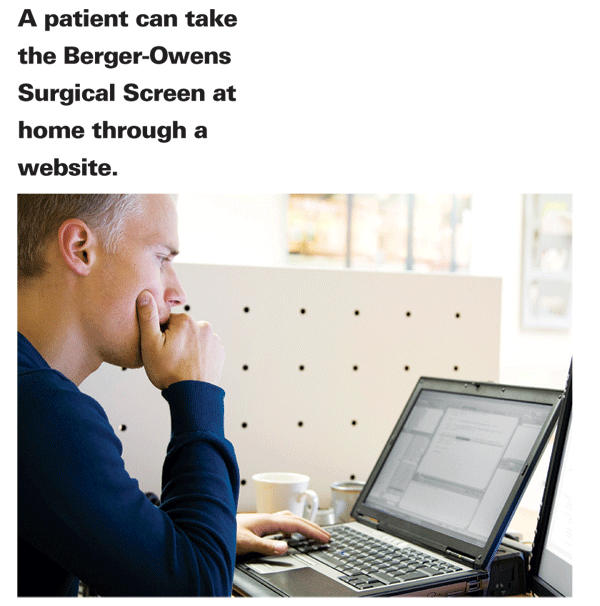Refractive surgeons have longed for a crystal ball that would allow them to differentiate between easygoing patients who won't obsess over small imperfections postop and those with perfectionist personalities who will focus on these things. Though there's no magic solution, an on-line beta test is under way to evaluate the ability of a new patient questionnaire to identify the patients most likely to be dissatisfied with refractive or premium intraocular lens surgery, and your practice can participate. Here's a look at the project.
The online questionnaire (found on mdpsy.com), called the Berger-Owens Surgical Screen version II, is the brainchild of Springfield, Mass., ophthalmologist Steven Berger and two psychologists, Dr. Berger's brother Andrew and his colleague Shane Owens, PhD.
Though they're currently trying to whittle the BOSS-II down to around 30 to 35 questions so it will be easier to take, the current 101-question test is designed to get at vital aspects of a patient's personality, such as how agreeable he is and his levels of openness and conscientiousness. The test's creators say these traits appear to be tied to a patient's level of satisfaction, or dissatisfaction, postop. The idea behind the current validation study of the test, which also involves a short postop satisfaction questionnaire for the patient as well as a postop questionnaire for the surgeon, is to find out how closely tied these personality traits are to patient satisfaction, and which questions can illuminate these traits. "If we could streamline the test to 10 minutes," says Dr. Steven Berger, "we could then offer, using the same online functionality, a way for surgeons to have a patient take the BOSS-II, have it scored by a psychologist and have a result that complies with the Health Insurance Portability and Accountability Act in 24 hours. Then the physician would have a wealth of information about the patient's personality profile."

The test's designers say the instrument's questions are unique because they don't involve patient self-reporting. Instead, the test uses a series of statements that the patient marks as either true or false, such as, "I like scary movies." This prevents a patient from just giving a response that he thinks the doctor would want to hear.
"No single question will get at a certain personality trait," says one of the team's psychologists, Dr. Owens. "Only by looking at combinations of items will you get at any one of the traits we're looking at." If a person doesn't like scary movies, for instance, and he answers several other questions that point in a similar direction, he might be neurotic, and might benefit from extra preop surgical counseling.
If you'd like to contribute data to the validation of the test by using it for some of your patients, you can visit mdpsy.com. Says Dr. Berger, "We've made a pledge that we'd like to move the BOSS-II from being used in a couple of practices and find an easy way, through a website, to allow lots of people to contribute data in a non-onerous way."











